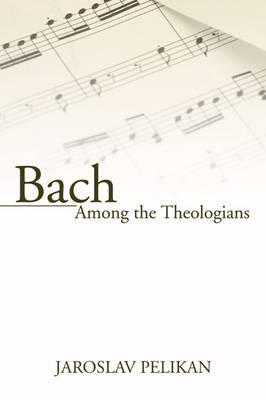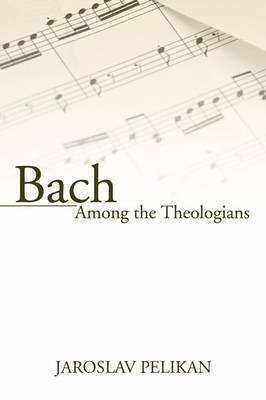
- Retrait gratuit dans votre magasin Club
- 7.000.000 titres dans notre catalogue
- Payer en toute sécurité
- Toujours un magasin près de chez vous
- Retrait gratuit dans votre magasin Club
- 7.000.0000 titres dans notre catalogue
- Payer en toute sécurité
- Toujours un magasin près de chez vous
Description
This superb and enduring contribution to the Johann Sebastian Bach tricentennial focuses on Bach's vocation as a musician of the church and on his work as a theologian. Although Bach is most often remembered for his music, Jaroslav Pelikan here reminds us of the message of Bach's works and of his understanding and devotion to his vocation within the church. By relating Bach's work to the heritage of the Lutheran Reformation -- musical as well as theological -- Pelikan places Bach within the context of the theological currents of his time. Maintaining that the Reformation heritage provides the underlying thematic and religious inspiration for Bach's work, Pelikan delves into three main movements within Lutheran theology of the seventeenth and eighteenth centuries as a framework for understanding Bach. He also demonstrates how Bach's sacred music complements and illustrates these theological trends. In the second portion of the book, Pelikan examines the theological motifs that are reflected in the texts Bach used and in the settings he provided for these texts. The author points to Bach's particular interest in the meaning of the cross, and to redemption and atonement through the death and resurrection of Christ. He notes the centrality of the 'Passions' in Bach's lifework and their importance for the history of the doctrine of atonement. 'Bach Among the Theologians' represents a unique inspirational complement to the many works that concentrate primarily on the composer's personal or secular life.
Spécifications
Parties prenantes
- Auteur(s) :
- Editeur:
Contenu
- Nombre de pages :
- 172
- Langue:
- Anglais
Caractéristiques
- EAN:
- 9781597522779
- Date de parution :
- 06-11-03
- Format:
- Livre broché
- Format numérique:
- Trade paperback (VS)
- Dimensions :
- 141 mm x 219 mm
- Poids :
- 222 g

Les avis
Nous publions uniquement les avis qui respectent les conditions requises. Consultez nos conditions pour les avis.






